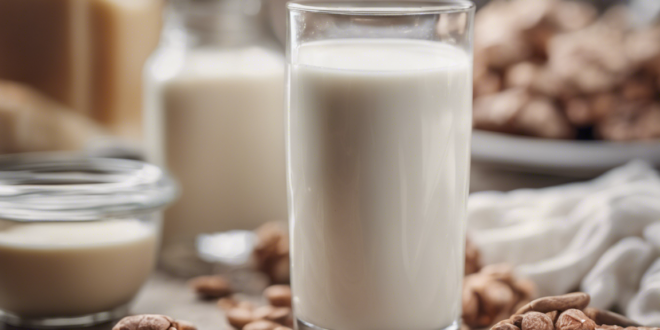Milk: A Powerful Ally in Reducing Bowel Cancer Risk, New Research Reveals
In a groundbreaking study that could revolutionize our understanding of dietary prevention, researchers have uncovered a compelling link between daily milk consumption and a significant reduction in bowel cancer risk. This research offers hope and practical guidance for millions of Americans seeking proactive approaches to cancer prevention through simple dietary modifications.
The Science Behind Milk’s Protective Properties
A comprehensive scientific investigation has demonstrated that individuals who incorporate a daily glass of milk into their diet may experience a remarkable protective effect against colorectal cancer. The study, conducted by leading nutritional epidemiologists, provides robust evidence supporting milk’s potential as a powerful nutritional intervention.
Understanding the Research Methodology
The research team analyzed data from multiple population-based studies, tracking the dietary habits and health outcomes of thousands of participants over an extended period. By meticulously examining milk consumption patterns and cancer incidence rates, researchers identified a statistically significant correlation between regular milk intake and reduced bowel cancer risk.
Key Findings: How Milk Fights Cancer
Several critical mechanisms explain milk’s potential cancer-fighting properties:
• Calcium Content: Milk’s high calcium concentration appears to play a crucial role in cellular protection and potential cancer risk reduction.
• Vitamin D Interaction: The combination of calcium and vitamin D may help regulate cell growth and prevent abnormal cellular development.
• Protein Components: Specific milk proteins have demonstrated potential anti-inflammatory and anti-carcinogenic properties.
Nutritional Profile of Milk: Beyond Cancer Prevention
While the cancer prevention aspect is groundbreaking, milk offers a comprehensive nutritional package that supports overall health. Rich in essential nutrients like protein, calcium, potassium, and vitamin B12, milk provides a holistic approach to wellness that extends far beyond cancer risk reduction.
Recommended Daily Intake
Experts suggest consuming approximately 8 ounces (one glass) of milk daily to potentially achieve the observed protective effects. However, individuals should consult healthcare professionals to determine the most appropriate intake based on personal health conditions and dietary requirements.
Addressing Common Concerns
Many individuals express concerns about milk consumption, including lactose intolerance and dietary restrictions. Fortunately, modern nutritional science offers multiple alternatives:
• Lactose-free milk options
• Plant-based fortified milk alternatives
• Calcium and vitamin D supplements for those unable to consume traditional dairy
Types of Milk: Choosing the Right Option
Not all milk is created equal. Consumers should consider various factors when selecting their daily milk:
• Organic vs. conventional
• Whole milk versus low-fat options
• Fortified milk with additional nutrients
• Potential allergen considerations
Additional Lifestyle Factors in Cancer Prevention
While milk consumption shows promising results, experts emphasize that cancer prevention requires a comprehensive approach. Complementary strategies include:
• Maintaining a balanced diet rich in fruits and vegetables
• Regular physical activity
• Maintaining a healthy body weight
• Limiting alcohol consumption
• Avoiding tobacco products
Research Limitations and Future Studies
Scientists acknowledge that while the current research is promising, continued investigation is necessary. Future studies will focus on:
• Long-term population studies
• Diverse demographic analysis
• Specific molecular mechanisms
• Potential variations in cancer risk reduction
Practical Implementation: Incorporating Milk into Your Diet
Integrating milk into daily nutrition doesn’t require radical lifestyle changes. Simple strategies include:
• Morning cereal with milk
• Post-workout recovery drink
• Smoothie ingredient
• Cooking and baking applications
• Standalone beverage with meals
Consultation and Personal Health
Individual health circumstances vary, and personalized medical advice remains paramount. Individuals should discuss dietary modifications, including increased milk consumption, with healthcare providers to ensure optimal health outcomes.
Conclusion: A Promising Path to Prevention
The emerging research on milk’s potential cancer-fighting properties offers an accessible, affordable, and potentially life-saving dietary intervention. By understanding the science and making informed nutritional choices, individuals can take proactive steps toward reducing cancer risk and promoting overall health.
Final Recommendations
• Consult healthcare professionals
• Consider individual health requirements
• Integrate milk cautiously into diet
• Maintain a holistic approach to health and wellness
 Good Calories Guide GoodCalories Guide focuses on nutrition, healthy eating, and overall wellness. The site offers practical insights into evidence-based dietary practices, including tips for specific lifestyles such as veganism, keto, and family-friendly meal planning. It also addresses unique nutritional needs for individuals with conditions like diabetes or food allergies, while providing quick and accessible recipes to make healthy living a sustainable and enjoyable choice.
Good Calories Guide GoodCalories Guide focuses on nutrition, healthy eating, and overall wellness. The site offers practical insights into evidence-based dietary practices, including tips for specific lifestyles such as veganism, keto, and family-friendly meal planning. It also addresses unique nutritional needs for individuals with conditions like diabetes or food allergies, while providing quick and accessible recipes to make healthy living a sustainable and enjoyable choice.


